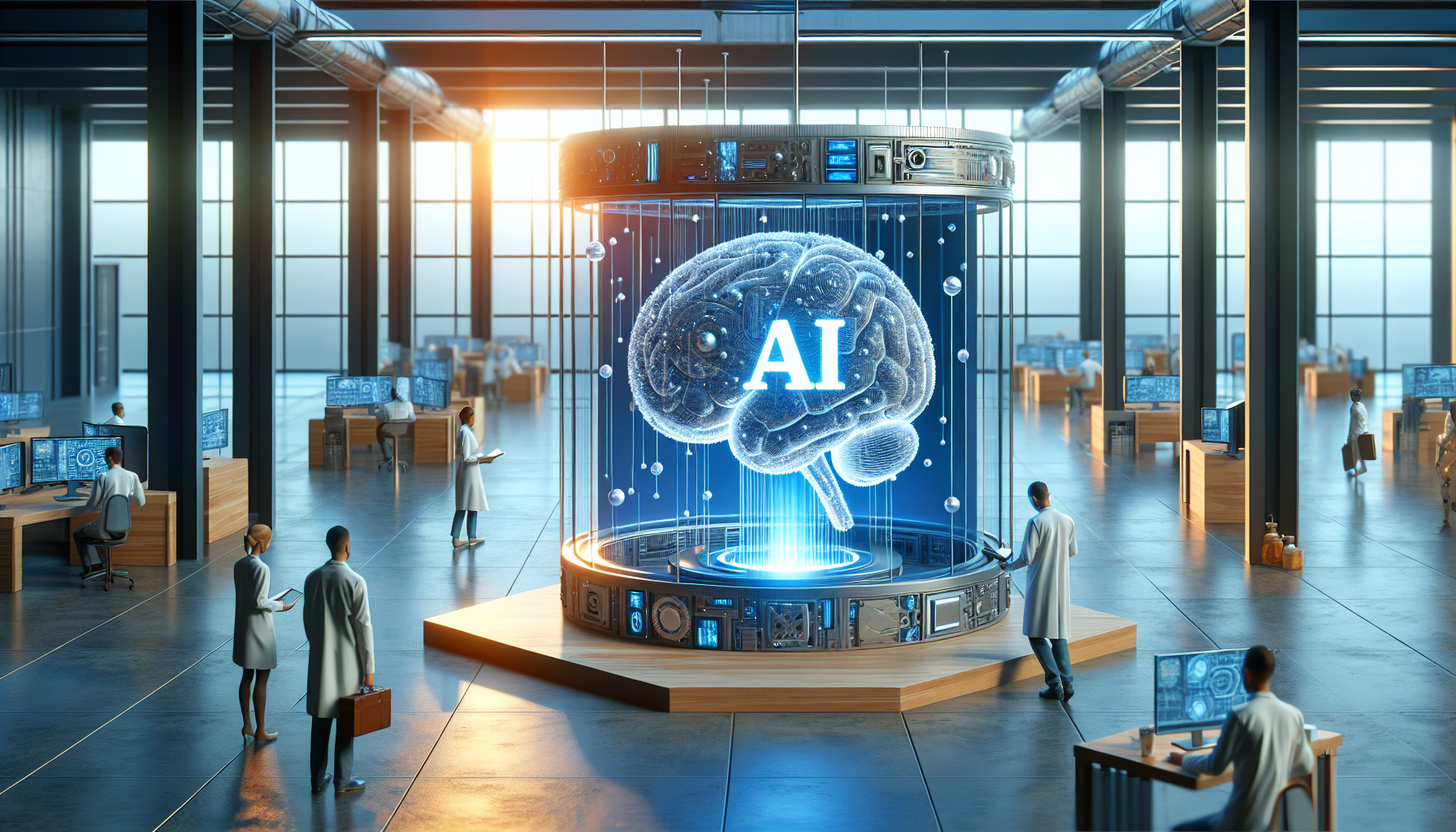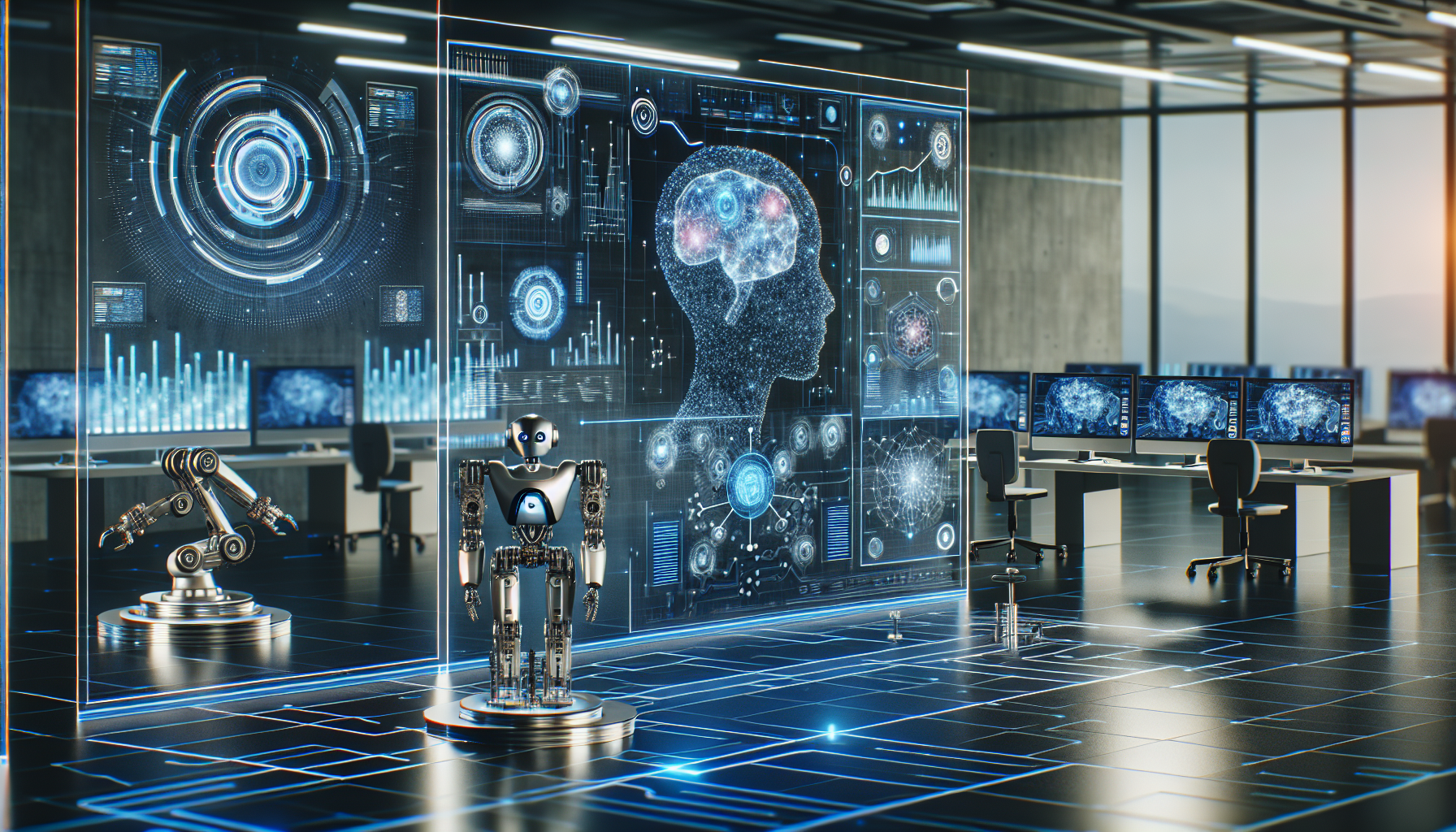
AI in Retail: How Technology is Transforming the Shopping Experience
September 3, 2025
Have you ever walked into a store and felt like the experience was tailored just for you? If so, you might have artificial intelligence (AI) to thank. The retail industry, once dominated by human intuition and traditional sales methods, is rapidly being reshaped by AI, creating shopping experiences that are not only more personalized but also incredibly efficient.
Imagine this: You walk into your favorite clothing store, and as soon as you step through the door, the store’s app on your phone buzzes with a personalized greeting. It suggests items you might like, based on your previous purchases and browsing history. As you wander through the aisles, AI-powered cameras track the products you seem interested in, and digital screens display related items you might love. This isn't science fiction; it's the reality of AI in retail, where technology acts as an invisible customer service assistant, enhancing our shopping experience.
But how did we get here? Let's break it down. Retailers are increasingly turning to AI to address several industry challenges: improving customer experience, optimizing inventory management, and boosting sales. Each of these areas is brimming with potential, and AI is proving to be a game-changer.
One of the major trends in AI retail is personalization. AI algorithms analyze vast amounts of data—from shopping habits to social media activity—to predict what a customer might want even before they know it themselves. This predictive power is a treasure trove for retailers, allowing them to tailor marketing strategies and product recommendations. Have you ever noticed how online shops seem to know exactly what you're looking for? That’s AI at work, creating a seamless and personalized shopping journey.
Beyond personalization, AI is revolutionizing inventory management. Using machine learning, retailers can predict demand more accurately, ensuring that shelves are stocked with the right products at the right time. This not only reduces waste but also minimizes the dreaded "out-of-stock" scenario. Imagine a world where you never have to deal with the frustration of finding your favorite product missing from the shelf—AI is bringing us closer to that reality.
And then there's the checkout process, an area ripe for innovation. AI is streamlining how we pay for our purchases, introducing cashier-less stores where customers can simply grab what they need and walk out. Sensors and cameras track the selected items, and payments are processed automatically via mobile apps. This not only cuts down waiting times but also allows for a more pleasant and hassle-free shopping experience.
But AI in retail isn't just about making things faster and more efficient. It's also about creating a more engaging and interactive environment. Take virtual fitting rooms, for example. By using augmented reality (AR) and AI, customers can "try on" clothes without physically putting them on. This technology considers your body type and preferences, offering a digital fitting experience that’s both fun and practical.
Despite these advancements, there are challenges and ethical considerations. Data privacy remains a significant concern. With AI analyzing personal data to offer personalized experiences, retailers must ensure that they handle this information responsibly. Transparency in how data is used and stored is crucial to maintaining consumer trust.
Moreover, the integration of AI into retail raises questions about employment. While AI can perform repetitive tasks with precision, there's an undeniable value in human interaction, especially in customer service. The challenge lies in finding a balance—leveraging AI to complement human workers rather than replace them.
As AI continues to evolve, the retail landscape will undoubtedly undergo further transformations. The potential for innovation is immense, and the possibilities are endless. Will we see AI-powered stores that predict community trends and adjust their inventory in real time? Or perhaps personalized holographic shopping assistants guiding us through our purchases?
These are exciting times, and the role of AI in retail is a testament to how technology can enhance our everyday lives. As we look towards the future, one thing is clear: AI is not just a tool for efficiency; it's a catalyst for creating richer, more personalized shopping experiences. What innovations will we see next, and how will they redefine the way we shop? The journey is just beginning, and it's one worth keeping an eye on.


